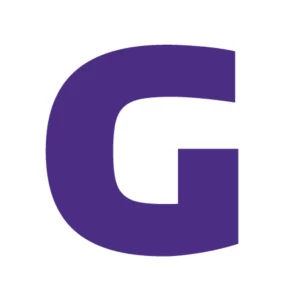We acknowledge that we are on the traditional land of the first people of Seattle, the Duwamish People past and present. We honor, with gratitude, the land itself and the Duwamish Tribe.
We believe that the best social research comes from a diverse mix of minds, backgrounds, and experiences and we are committed to cultivating these diversities in an inclusive work environment. The Institute provides equal opportunities to all employees and applicants without regard to race, age, sex, color, national origin, sexual orientation, gender identity, genetic disposition, neurodiversity, ability or disability, veteran status, or any other protected category under federal, state or local law. As part of our Institute, we support the development, growth, and retention of all employees and those who engage in our work, including volunteers, participants, and communities.
The Institute researches vulnerable populations and designs innovative solutions to improve their health, well-being, and longevity. Diversity, Equity, Accessibility, and Inclusion (DEAI) are fundamental to the Institute and our mission. Our work is based on the Health Equity Promotion Model (Fredriksen Goldsen, et al., 2014), which we developed to prioritize equity. A primary premise of our framework is that all individuals have a right to equity in their development, health, and well-being, and it is a collective responsibility to ensure that all have access to reach their full potential.
In collaboration with the UW Office of Minority Affairs and Diversity, we pledge to encourage, through our research, education and interventions and programs, attention to, and activism on, social, racial, gender, sexuality, and age justice issues. We pledge to welcome and support hiring underrepresented employees and students.
The 20th century was marred by significant, violent confrontations surrounding racism, sexism, inequality, xenophobia, transphobia, and heterosexism. During the first two decades of the 21st century, we continued to endure momentous events, such as the attack on 9/11 (2001), the devastating structural and political aftermath of Hurricane Katrina (2005), the Occupy Wall-Street movement (2008), the mass shooting at Sandy Hook Elementary (2012), the protests for racial equality in Ferguson (2014), George Floyd’s murder (2020), and confrontations for sexual and gender justice. We exist in an era of social upheaval and transformation, carrying both peril and promise. Like many other organizations, the Goldsen Institute is implicated in, and feels the ramifications of, this complex social landscape.
While Social Work as a discipline has a history of participating (intentionally and unintentionally) in the oppression of many marginalized groups, the Institute strives to achieve social justice and work toward undoing institutionalized oppressions of all kinds and providing resources for communities to thrive and live lives that are supported and valued.
The following sections focus on Policy & Procedures providing structure and accountability to the Institute.
The Institute, the School of Social Work, and the University of Washington promote the retention and success of a diverse and inclusive faculty, staff, and students at the UW. Overall, our goal is to advance the professional development and careers of those in leadership and staff positions as well as students and intervention and program participants. The UW offers training and mentoring opportunities, resources on tips and techniques on professional development and career advancement, and access to workshops and other training opportunities.
The Institute fosters ongoing continuous training on DEAI, growth, and leadership among management, staff, faculty, and students; all are engaged in DEAI related practices. We recognize the importance of cultural dialogue and listening sessions to provide opportunities for feedback and growth. The UW provides annual DEAI training opportunities for leadership and staff and we encourage employees to attend these trainings. We support leadership and staff in taking risks and developing new skills that provide opportunities for advancement and growth.
Demographic Data
We routinely collect, disaggregate, and analyze demographic data for all programmatic and operational work, using the data for planning and decision-making.
The Community
We have strong, mutually beneficial, accountable, and equitable partnerships with diverse organizations and communities, including leaders from resilient underserved communities.
Multicultural Inclusion
Staff, faculty, students, and program participants feel valued. All aspects of the Institute reflect the voice, contributions, and interests of a multicultural and diverse society; the Institute has an inclusive and multicultural culture and has created systems, policies, and practices to strengthen this culture.
On-going Feedback Mechanisms
We provide opportunities in our evaluation of programs and services for participants to provide feedback and input on their experiences and evaluation of the services and programs provided.
We work to ensure transparency at all levels, including practices and policies.
We will ensure DEAI systematically guides our decisions by operationalizing DEAI and including them in our policies and procedures, day-to-day practices, and resource allocations. The Institute fosters ongoing training and evaluation of DEAI, growth, and leadership among management, staff, faculty, students and intervention and program participants; all are held accountable for DEAI related practices and to achieve the outcomes we set.
The Institute and its leaders are committed to helping to build the DEAI field and develop best practices by which to evaluate our progress. We demonstrate our accountability to clients, staff, students, collaborators, and community and other stakeholders through the development and distribution of transparent policies and practices, with clear goals, strategies, and indicators of progress. All evaluation and accountability mechanisms (projects, programs, management, faculty staff, and participants) include specific DEAI related metrics that are measured and reviewed regularly.

